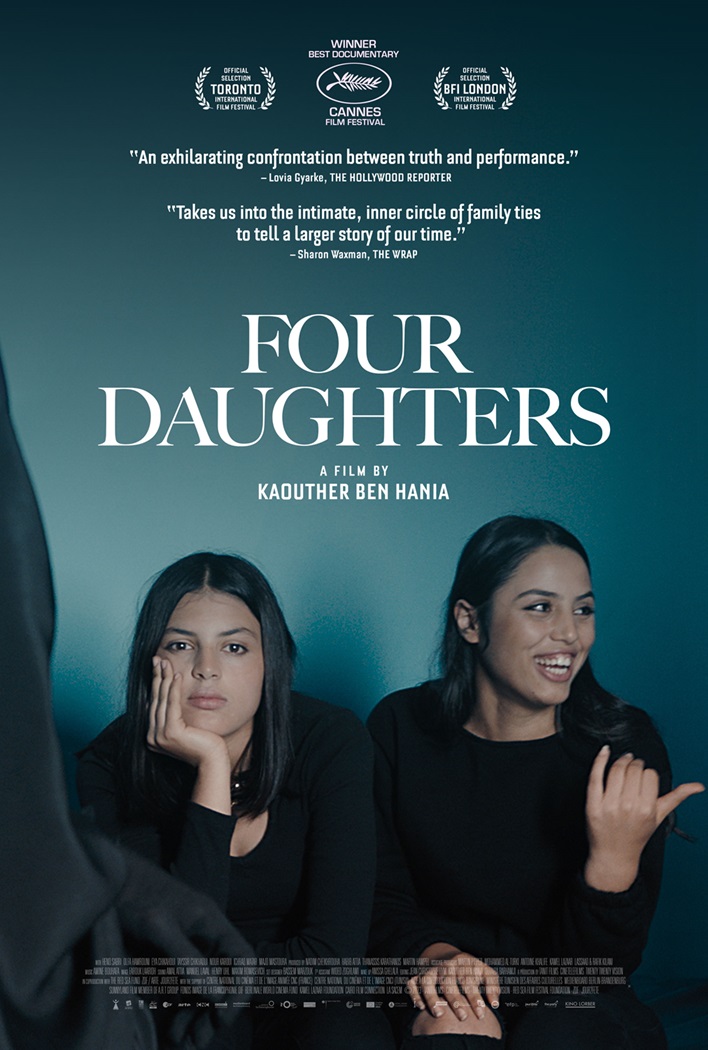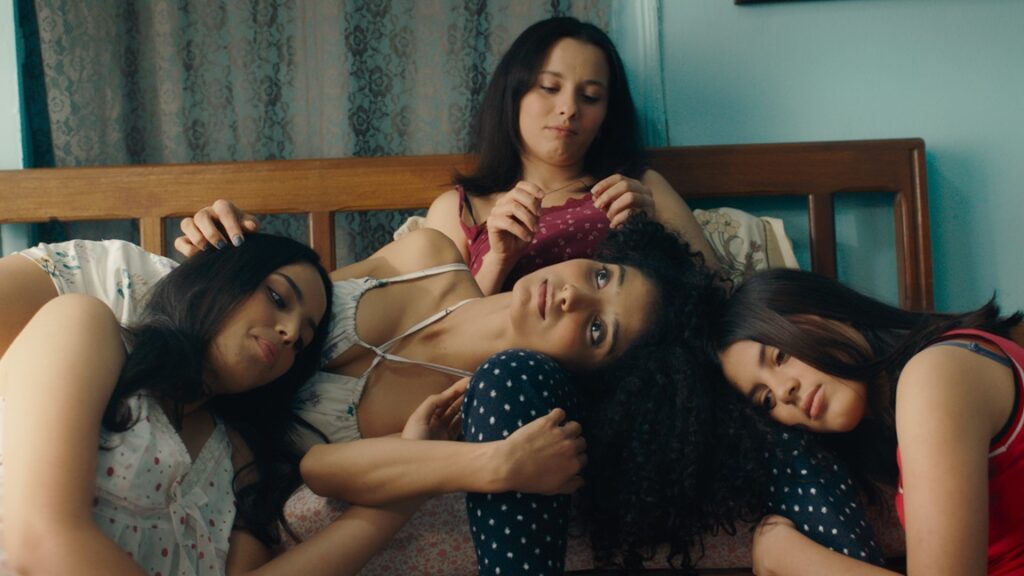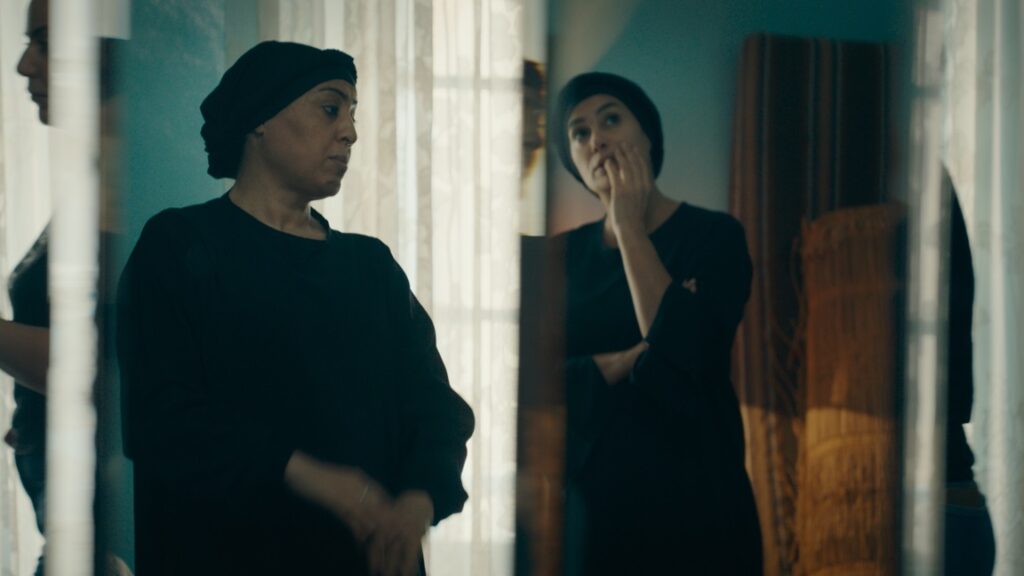
No parent can know what will become of their children in adulthood, and they can only do so much to shape the path that they go on that could influence their future. Yet there are certain directions and fates that are weightier and more significant than others, and it can be therapeutic, if not necessarily transformative, to trace the route that got them to where they are. In her latest film, Four Daughters, Kaouther Ben Hania offers a startlingly insightful look at one mother and the unexpected, inconceivable trajectory of her children.
Ben Hania begins with Olfa Hamrouni, a Tunisian woman who shares that she has two missing daughters, Ghofrane and Rahma. Actresses Ichrak Matar and Nour Karoui are brought in to play them, and Olfa’s younger daughters, Eya and Tayssir, agree that they each have something, be it a physical or personality resemblance, that reminds them of who they used to be. Olfa shares her story and what led her to have her daughters, and their experiences are spoken about and reenacted as the journey towards Ghofrane and Rahma’s radicalization and recruitment into ISIS is traced and revisited again and again.

This is a remarkably interesting documentary, one that plays with its format by offering dramatized scenes that involve formative moments from Olfa’s marriage and the sisters’ various rebellions against their prescribed way of life. Actress Hind Sabri comes in to play Olfa, listening carefully to and repeating her words and often pushing her to understand how she could have done something in a given situation, like when she chooses to hit her daughters and insult them. That dynamic is exceptionally worthwhile, since Olfa is capable of some retrospection but also stands by much of what she did, something that Sabri struggles to accept.
This is a heartbreaking story that conveys the longing that Eya and Tayssir have for the sisters they remembered and slowly lost, and who they can now only see in released footage from their prison sentences. It’s intriguing to see how their countercultural attitudes then led to embracing something which, at the time, wasn’t as in vogue, wearing a hijab and niqab, and the very lighthearted way in which first trying on such garments represented the last moments of true warmth and connection before a severe and irreversible shift in their worldview.

Rather than being concretely a documentary or a reenactment, this is most definitely a hybrid, a film that acknowledges its shortcomings since Matar and Karoui can only shape their performances based on what they’ve been told about their characters. The real sisters cannot communicate and or offer notes, and it’s also likely that they’re so far removed from the girls they were when their sisters looked up to them and their mother still felt like she had some say over what they did with their lives.
It’s absolutely fascinating to see and hear Olfa share how she raised her daughters and the way in which she interacted with the various men in her life, and to see how they continue to look up to her even after much of what she did to them and what they’ve lost in those idealized relationships with their older sisters. Ben Hania makes a startling and effective transition from her previous film, The Man Who Sold His Skin, which earned an Oscar nomination for Best International Feature (this film is Tunisia’s submission this year), to deliver an entirely compelling portrait of a family that leaves many questions unanswered yet offers a stark and deeply moving character study.
The film was an official selection for 2023 Cannes Film Festival, 2023 Toronto International Film Festival, 2023 BFI London Film Festival and Tunisia’s Official Entry for the 96th Academy Awards.
Grade: B+
Check out more of Abe Friedtanzer’s articles.
Four Daughters opens theatrically in New York on Friday, October 27th and in LA on Friday, November 3rd, with a national rollout to follow.

